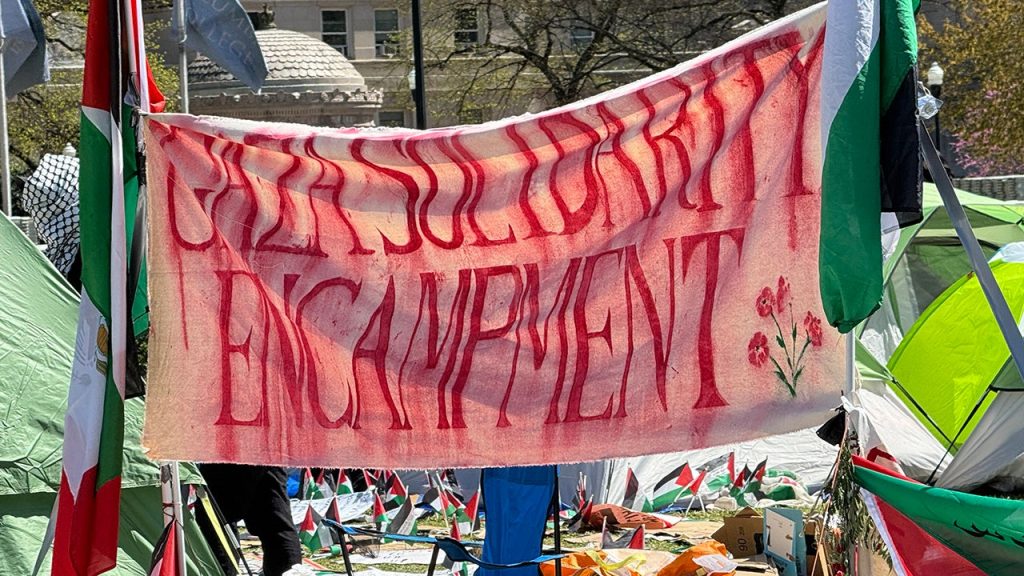Columbia University in New York set a deadline for administrators and anti-Israel protesters to reach an agreement to end the encampment on campus. University President Minouche Shafik initially set a midnight deadline for an agreement that must include dismantling the encampment, dispersing, and following university policies. Shafik warned that if discussions were unsuccessful, administrators would have to consider alternative options for clearing the West Lawn to restore calm to campus. The university has already transitioned to hybrid learning for the remainder of the semester due to safety concerns arising from the protest.
As the initial deadline approached, a student demonstrator announced an extension of the negotiation deadline to 8 a.m., with university officials and protest organizers working to come to agreements. Terms included students removing a significant number of tents, ensuring protesters were only Columbia students, complying with FDNY safety regulations, and maintaining a welcoming environment that prohibited discriminatory language. Demonstrators insisted on a written commitment from the administration stating that the NYPD or National Guard would not be used on students, despite New York Gov. Kathy Hochul stating she had no plans to call in the National Guard. NYPD riot police and counterterrorism units were standing by, warning protesters to comply with noise levels or risk arrest.
Protesters dismantled tents on the west side of the South Lawn ahead of the midnight deadline. Some demonstrators relocated to Furnald Lawn, while others remained on the west side of the South Lawn. Following midnight, tents were moved back onto the lawn. The deadline for an agreement came after more than 100 arrests were made when police were authorized to clear the encampment. Shafik emphasized that while the right to protest is essential and protected at Columbia, intimidating, harassing, or discriminatory behavior would not be tolerated, and violators would face disciplinary action.
The university community was updated on negotiations through statements from Shafik and campus spokespersons. Negotiations centered on agreements between administrators and protesters regarding the encampment’s presence on campus. Demonstrators expressed their stance against the use of police force by the administration, calling for written commitments that the NYPD or National Guard would not be utilized against students. Police were on standby overnight in response to the protest, asking protesters to adhere to noise restrictions and avoid causing disruptions.
Columbia University’s move to hybrid learning and the efforts to address the encampment demonstrate the ongoing conflict on campus. Shafik emphasized the importance of maintaining a community of mutual respect and kindness, condemning discriminatory behavior. The university continues to navigate the situation, seeking resolutions that balance the right to protest with safety concerns. Protesters continue to advocate for their demands and push for commitments from the administration regarding police involvement. The outcome of negotiations and ongoing developments on campus will shape the future of the protest and the university’s response.


